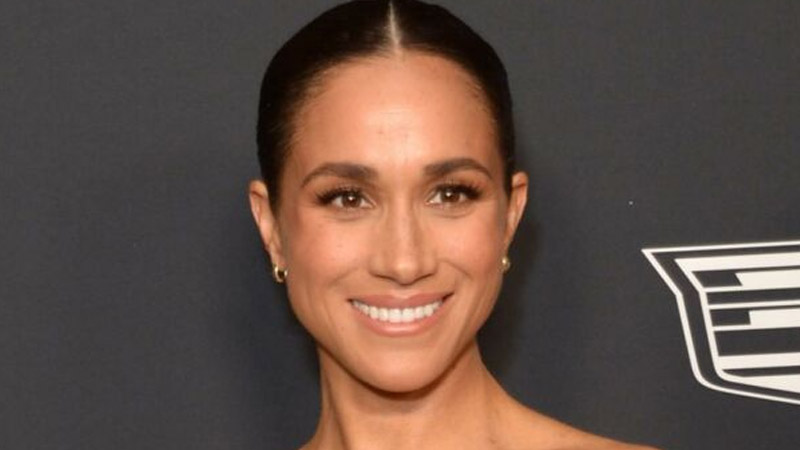
Meghan Markle’s Luxury Brand Faces Backlash for Alleged Royal Imitation
Meghan Markle’s latest venture into the luxury brand sector has stirred controversy, with critiques labeling it a blatant imitation of royal grandeur. Esteemed royal commentator Kennedy shared this perspective in a forthright commentary for The Daily Mail, shedding light on the contentious nature of the brand’s image and marketing strategy.
Kennedy’s critique centers on the perception that Markle’s brand deliberately capitalizes on her royal connections, veering into the territory of what some might call a royal charade. The brand’s presentation, including Markle’s appearance in a lavish ballgown accompanied by a gold-embroidered logo, has been pointed out as exemplifying this royal mimicry.
Because “Scurrilous Stateside rumors about the health of their marriage were swirling to boiling point.” Not to mention, “Dirty duo Andy Cohen and Stephen Colbert were popping gags at Kate’s expense.” “And the proximity of Meg’s Insta unveiling felt a little too close for Californian comfort as Prince William stepped out on stage in London just hours later, at an awards ceremony honoring his late mother. Ouch!”
The analysis suggests that the branding strategy might not just be an attempt to leverage Markle’s royal past but could also be seen as an overt exploitation of it, raising questions about the authenticity and intention behind the brand’s image. This branding approach, according to Kennedy, goes beyond mere inspiration from Markle’s royal experience and enters the realm of an unabashed royal facade.
The implications of such a strategy are multifaceted, touching on issues of authenticity, marketing ethics, and the delicate balance between personal identity and brand image, especially for public figures with royal affiliations. The brand’s royal-inspired imagery and themes have ignited a debate on the appropriateness and ethicality of using royal connections for commercial gain, particularly in contexts that might blur the lines between personal heritage and brand narrative.
As Markle’s luxury brand continues to make waves in the market, the discourse surrounding its branding and positioning highlights the complex dynamics at play when royalty intersects with commerce. The critique by Kennedy opens up broader discussions about the role of royal imagery in branding and the ethical considerations that accompany such marketing strategies, especially in an era where the line between public figure status and commercial interests is increasingly blurred.
